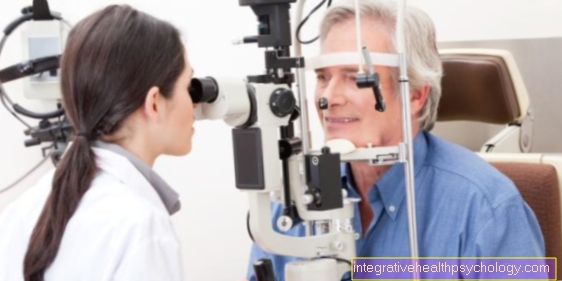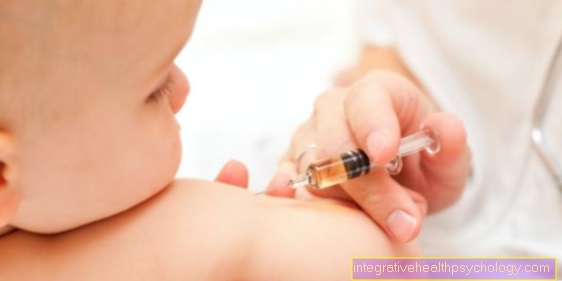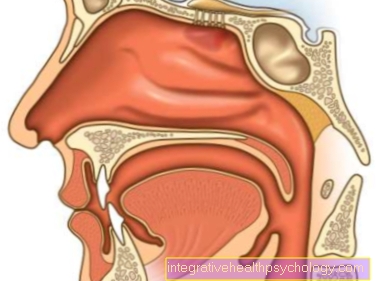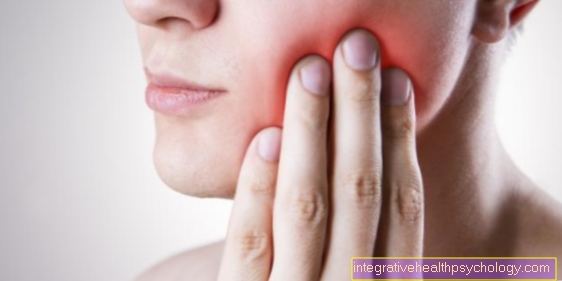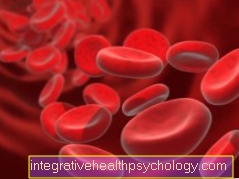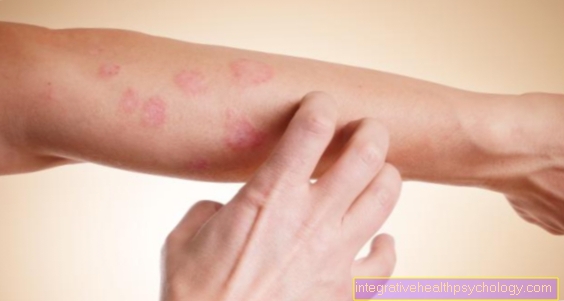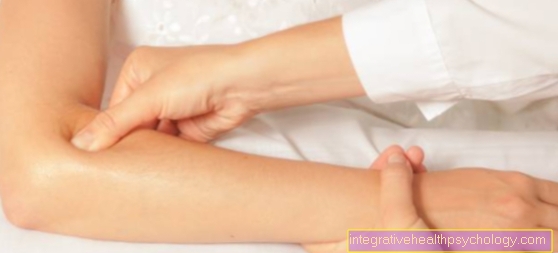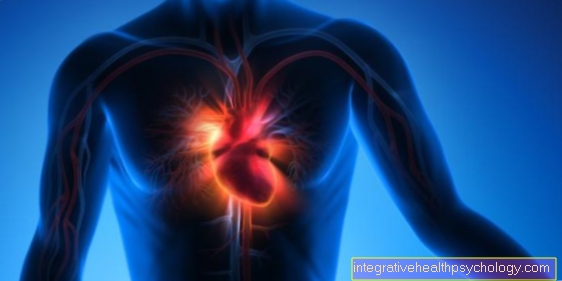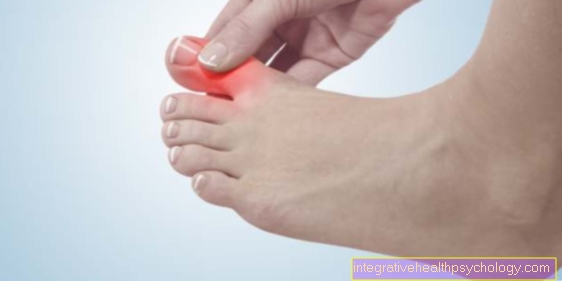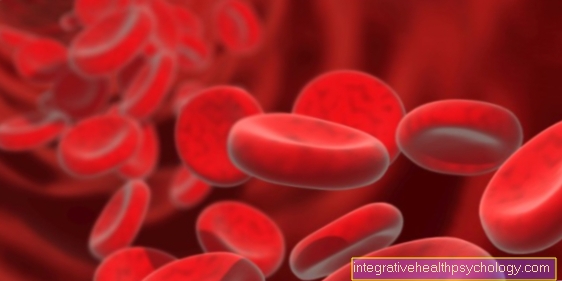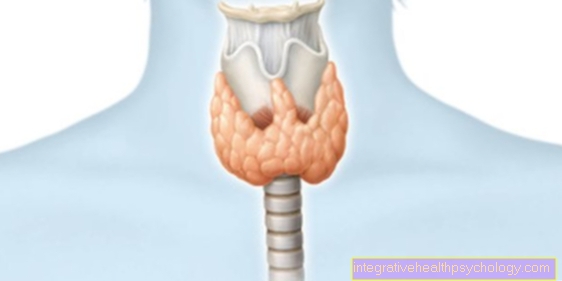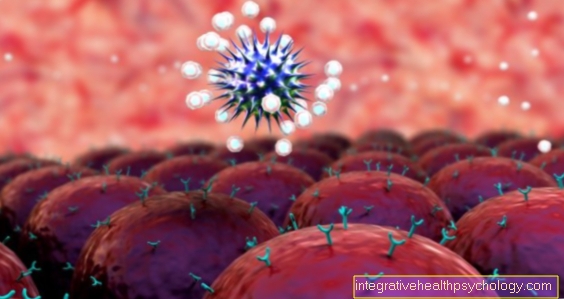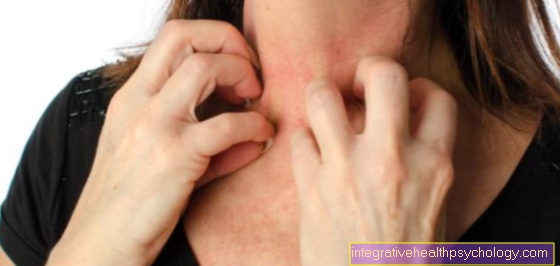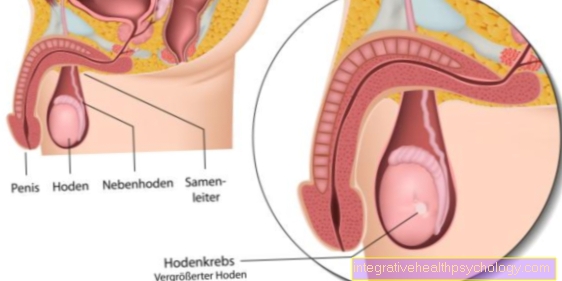Side effects of creatine
introduction
Creatine is considered one of the best researched and most promising nutritional supplements on the market today. However, the study situation regarding creatine is somewhat obscure. While there are both studies that prove effectiveness, there are just as many studies that say the opposite.
In terms of harmfulness, however, all studies suggest that long-term use of creatine does not cause any consequential damage - however, the latest studies have only considered a period of about 10 years.
In general, the intake of creatine or in general of many dietary supplements is equated by the ignorant with the consumption of steroidal anabolic steroids. However, there is a very clear difference between steroid supplements and creatine. This applies to both the underlying mode of action and the risk potential that emanates from the two substances.
Find out more about this topic at: The effects of creatine

What are the side effects of taking creatine?
Overall, one cannot speak of serious side effects in connection with creatine, but rather of unpleasant additional symptoms, all of which can be explained by the way creatine works.
Creatine is able to bind water, which is why it is withdrawn from the body elsewhere. This can affect the complexion, digestive tract and body weight.
Due to the fact that water is withdrawn from the body elsewhere, the water in the skin cells also disappears. So it comes to dry skin, the skin looks more wrinkled and not as tight.
In the digestive tract, both diarrhea and, in rare cases, constipation can occur. Since the creatine cannot be completely absorbed by the body, it is also excreted through the intestine, where it is, however, still able to bind water. This leads to the stool becoming thinner - in the worst case it even leads to diarrhea.
The weight gain, in turn, can be explained by the water that is actually absorbed in the body - more precisely in the muscles. Again, there is increased storage of water, which explains the weight gain.
In addition, creatine can give the appearance of a damaged kidney. The breakdown product of creatine - creatinine is used in medicine as a marker for the functionality of the kidneys. Physiologically, creatinine occurs as a breakdown product of the muscle and is excreted to a large extent by a healthy kidney. If the amount of creatine absorbed increases, so does the amount of creatinine in the blood, which is used as an indicator of the condition of the kidneys. However, if the kidney has already been damaged, further damage can only be detected poorly.
Also read:
- How useful is creatine?
- Creatine monohydrate
Does creatine cause impotence?
There is no evidence whatsoever that taking creatine would result in decreased potency or impaired sperm quality.
The assumption behind this could be, similar to the effects on the testes, that creatine is regarded as a kind of steroidal anabolic, which has side effects in the area of impotence or sperm quality. In this case, too, the mode of action of creatine does not provide any indication of these suspected side effects. With anabolic steroids, however, it can happen that the body's own testosterone production is stopped due to the permanently increased testosterone level. After stopping doping, in the worst case scenario, it may no longer be possible to produce your own testosterone. With that the state of impotence would be reached.
However, this effect has not been investigated for creatine in any previously published study, as the assumption seems far too far-fetched for there to actually be a causal relationship.
You may also be interested in this topic:
- Creatine for muscle building
- Supplements for building muscle
Hair loss
Compared to the other side effects discussed in this section, this seems to be most of the truth. Although there seems to be only one study in the professional world that came to this conclusion, it cannot be ignored as completely unfounded.
Primarily, however, hair loss only appeared to occur in test subjects who "suffered" from hereditary hair loss anyway; In these subjects, premature hair loss could possibly occur. But then they would lose their hair even without taking creatine.
Other people who were not affected by hereditary hair loss, however, were unimpressed by the intake of creatine - as far as this side effect is concerned.
Another argument that could be put forward is that with its millions of uses today, much more would be found and more studies would come to the same result if creatine ingestion resulted in a tangible problem.
other topics:
- What can you do about hair loss?
- BCAA effect and function
Side effects by localization
On the testicle
There are no known side effects of creatine that affect the testes or, figuratively, male potency.
This assumption could possibly stem from the fact that dietary supplements are generally regarded as “forbidden” substances that are equated with anabolic steroids.
However, this is not the case in the slightest. So far there is no study that has brought such a result to light. In fact, this assumption probably seems so absurd that the possibility has not been investigated at all.
Since creatine is a substance that is also found in the human body in a completely physiological way, sooner or later it should affect the testicles in every man. Since it is usually in the muscle fibers, people who have more muscle also have more creatine. Should it now be known of muscular men that they suffer from potency problems, etc., this is due to many other factors - mostly to the use of the steroidal anabolic steroids mentioned above.
Also read:
- Bodybuilding
- Nutritional plan to build muscle
At the heart
According to current knowledge, there is also no evidence to suggest that creatine could have negative effects on the heart, or more precisely on the heart muscle cells.
Rather, until a few years ago, attempts were made to help people with severe heart failure by giving them creatine. With heart failure, the heart muscle is not strong enough to pump blood out of the heart against the blood pressure in the body. With the help of creatine, an attempt was made in this context to strengthen the heart muscle and to ensure that its strength development increases in order to be able to generate higher pump pressures of the heart. However, this effect could not be achieved with the ingestion of simple creatine powder. In a study from the 90s, however, the administration of phospho-creatine showed a positive effect.
This myth could also arise from the fact that physical connections were misinterpreted. Since creatine is now considered safe, it is consumed by the majority of active athletes. If heart problems developed in connection with physical training, this could have been incorrectly attributed to the ingestion of creatine, although in reality other things such as undiagnosed myocarditis (heart muscle inflammation) were behind it.
More about this at: Myocarditis and exercise
On the skin
This point was also briefly mentioned above and will now be explained in more detail. How creatine changes the complexion is primarily related to the additional amount of water absorbed. As already described, creatine ensures that water is bound to it in the body.
Now the complexion can change in two ways:
The first possibility assumes that not enough water is absorbed with the creatine. Accordingly, the creatine has to use the body's “water reservoirs”. This happens on the one hand from the water, which is part of the blood - the blood becomes thicker, so to speak, and on the other hand from the water, which is located in the subcutaneous fatty tissue and in the skin itself. The skin appears thinner, more wrinkled and less tightened.
The second possibility is based on the assumption that the body is supplied with enough water so that the water reservoirs are not tapped or refilled directly. The skin remains tightened. Due to the increase in size of the muscles, people with low body fat can also cause the skin to be tightened or stretched even further by the enlarged muscles.
You might also be interested in this topic: Muscle building and anabolic steroids

